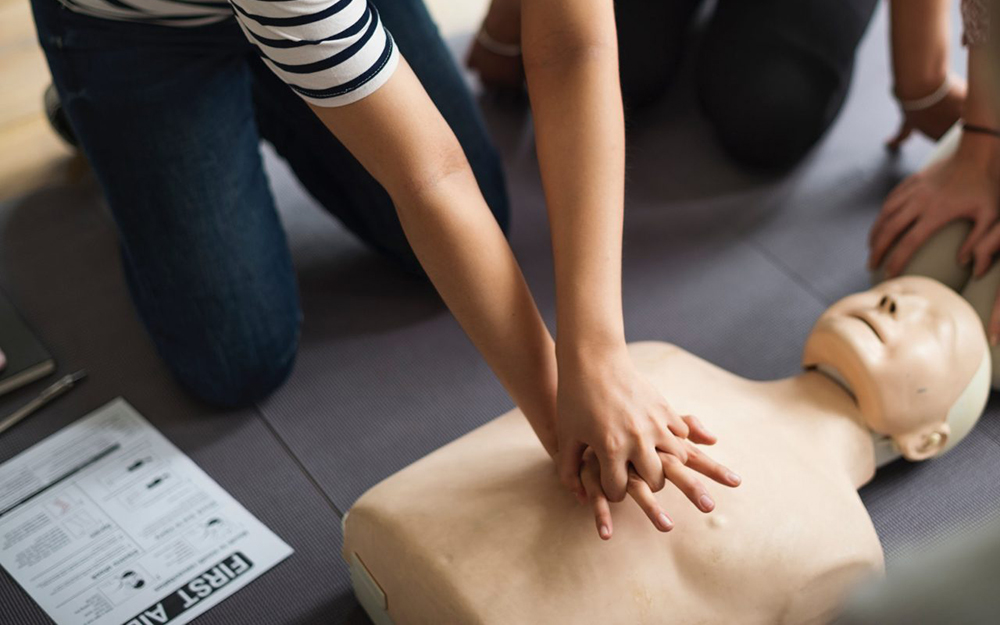
By Fire Chief Sam DiGiovanna
Why is CPR Important? Why is knowing how to give Cardio Pulmonary Resuscitation (CPR) important? “CPR is important because it provides those who have stopped breathing, for whatever reason, a ‘bridge’ from the moment of their death, to the moment professional responders arrive, during which the rescuer maintains the circulation of oxygen rich blood to the heart, lungs, and brain.”
When someone falls victim to sudden cardiac arrest (SCA), their heart stops beating in an orderly manner. The once efficient beat has deteriorated to a quivering: this is called fibrillation. This quivering does not adequately pump oxygenated blood throughout the body. This means vital organs like the heart and brain will rapidly start to fail in a matter of minutes. In fact, statistically speaking, the chance of surviving SCA is lowered by as much as 10 percent for each passing minute without blood circulating.
Let’s suppose we have a victim of SCA. They’ve collapsed, are unconscious, unresponsive, and are not breathing normally. Someone has called EMS and another person is getting the AED, if available. Time is passing and the victim’s chances for survival are rapidly decreasing. Their heart is not pumping. They need someone to act as a replacement pump. This someone could be you.
Do you need to be formally trained and certified in CPR (cardiopulmonary resuscitation) to provide assistance? Although CPR training is recommended and will definitely help provide familiarity and confidence, and while CPR certification is even more comprehensive, the process of CPR can be simplified for the lay rescuer. Dial 9-1-1 to call EMS (emergency medical services), then push hard and fast in the center of the chest (at least 100 compressions a minute) until help arrives.
In the USA, over 900 people per day experience SCA. Their only chance for survival is quick action – call EMS, and push hard and fast in the middle of their chest until help arrives. Why is CPR important? Because you or someone you love could be a victim needing it to survive.
Once we see the importance of CPR, the logical next step is training. Check out American Heart Association® CPR/AED classes. There’s no time like the present to get it done.











































